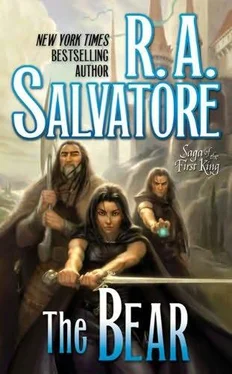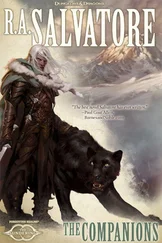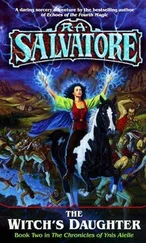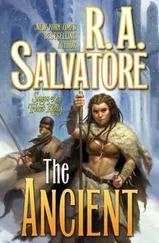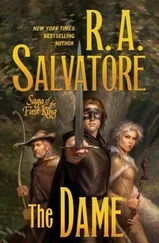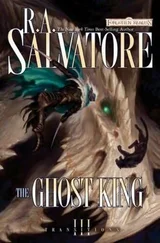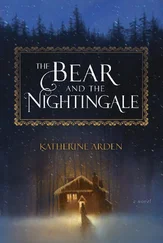R. Salvatore - The Bear
Здесь есть возможность читать онлайн «R. Salvatore - The Bear» весь текст электронной книги совершенно бесплатно (целиком полную версию без сокращений). В некоторых случаях можно слушать аудио, скачать через торрент в формате fb2 и присутствует краткое содержание. Жанр: Фэнтези, на английском языке. Описание произведения, (предисловие) а так же отзывы посетителей доступны на портале библиотеки ЛибКат.
- Название:The Bear
- Автор:
- Жанр:
- Год:неизвестен
- ISBN:нет данных
- Рейтинг книги:3 / 5. Голосов: 1
-
Избранное:Добавить в избранное
- Отзывы:
-
Ваша оценка:
- 60
- 1
- 2
- 3
- 4
- 5
The Bear: краткое содержание, описание и аннотация
Предлагаем к чтению аннотацию, описание, краткое содержание или предисловие (зависит от того, что написал сам автор книги «The Bear»). Если вы не нашли необходимую информацию о книге — напишите в комментариях, мы постараемся отыскать её.
The Bear — читать онлайн бесплатно полную книгу (весь текст) целиком
Ниже представлен текст книги, разбитый по страницам. Система сохранения места последней прочитанной страницы, позволяет с удобством читать онлайн бесплатно книгу «The Bear», без необходимости каждый раз заново искать на чём Вы остановились. Поставьте закладку, и сможете в любой момент перейти на страницу, на которой закончили чтение.
Интервал:
Закладка:
"This is a magnificent city," Milkeila said to Cormack, following him to Lady Dreamer's rail.
Unexpectedly, a smile spread on Cormack's face, and Milkeila didn't quite understand until the man nodded his chin, prompting her to follow his gaze to the southeast. There, far, far across the dark waters of the great Mirianic Ocean, swirls of colors painted the sky, the legendary aurora that gave Corona its name, the heavenly ring of magical gemstones that God had shown to Blessed Abelle a century before. That gift had sustained the founder of Cormack's church on a distant deserted island and had returned Abelle to Honce, the blessed man walking on the ocean waters across the many miles. Cormack had heard of the equatorial aurora, of course, and had even seen hints of it from St. Mere Abelle on a couple of occasions, but never had he witnessed it so clearly. Never had its glory shone to him to so lift his heart as now.
"It is beautiful," Milkeila remarked with awe.
"The fruits of the ring did sustain Blessed Abelle," Cormack replied. "And so they will sustain us through these dark times."
He put his hand on the rail, and Milkeila put hers atop his. The lovers stared out at the aurora for a long while, then turned their eyes to each other and sealed the promise of the magic of God with a long and gentle kiss.
FOUR
He let the wind be his guide as he meandered across the lands devastated by war, paralleling the roads that had been viewed as a sign of hope and progress by the people of Honce. Those networks had been built to open trade, it was said, and to allow the lairds to move their armies to rid the land of powries. Few foresaw that those same roads would carry the engines of war to holding after holding as the two most prominent lairds, Delaval and Ethelbert, laid claim to a unified kingdom of Honce as their dominion.
Bransen avoided one battered village after another, having little desire to repeat the dialogue he had suffered with the widow from Hooplin Downs. Truly, after his encounter with the folk there, he didn't wish to speak with anyone, other than his wife, who remained so far, far away.
He did sneak into the clusters of farmhouses when he found them, though. In the dark of night the Highwayman made his way about the communities, pilfering food and drink where he could. With his great skill he was never seen or heard and was always well on his way long before the sun lightened the eastern sky. He tried to leave behind firewood or anything he could find to repay his unwitting hosts.
Each morning seemed to dawn a bit warmer as summer came on in full to this southernmost region of Honce. Still moving due west, Bransen kept expecting the road to turn north or to bend that way at least. But the towering mountains remained in clear view to his left, day after day. He was in lands unknown, for this was not the route that he and Jameston had taken from Pryd Town to Ethelbert dos Entel. In those first hours after fleeing the city, after his defeat at the hands of Affwin Wi, Bransen must have veered farther south than he had intended. Many times the battered young man considered backtracking to the coast and running due north until the coastline curved eastward, taking him to Chapel Abelle and Cadayle.
But Bransen found himself strangely transfixed by the scenes opening before him. He didn't know it, but he was following the route Yeslnik's army had taken when they had departed the field outside Ethelbert dos Entel's walls, the would-be king running from fear of Laird Ethelbert's strange Behr assassins. The same assassins who had murdered Laird Delaval and taken Bransen's sword and brooch. The same assassins who had taken from Bransen his hopes of a better Honce.
His travel became more difficult over the next few days, for there were no more farmhouses from which he could steal food-no standing ones, at least. And there were no chickens in any barnyard nor any living sheep or cattle or… anything. The crops had been burned and trampled, the ground torn and ruined. Bransen noted thousands of footprints and hoofprints and deep ruts caused by many passing chariots and wagons.
Bransen bent low to inspect the ground. Utterly, intentionally ruined, he realized to his horror. Most of it was simply black and red dirt common to the region, but Bransen also found white specks, as if someone had scattered something atop the trampled areas. He tapped his finger to one such speck and brought it up to sniff, then tasted it. Bransen's face crinkled, and he spat out the powerfully salty substance.
Some army had purposely done this. This was far more than the result of a march. One of the lairds-Ethelbert or Yeslnik-had devastated this region, had ruined the villages and the livelihood of the folk of southernmost Honce. Yeslnik, he figured, since the most recent tracks led to the west and since Ethelbert's army remained in his city on the eastern coast.
So Laird Yeslnik had crossed here in his retreat to Delaval City and had destroyed the farmland behind him. But where had all the residents gone?
Bransen's gaze went out to the north, toward where he approximated Pryd Town to be, and he imagined his former home overrun by bedraggled refugees, dirty and hungry and desperate. He sighed deeply at that probability but just shook his head and moved along.
Soon after, he came to a fork in the road, where one branch turned decidedly north and a broken signpost indicated it to be the road to Pryd. The other branch, continuing to the west, was marked for Delaval City. The army's passage, still due west, was clear enough to see, but the north road showed no fresh signs of any substantial passage.
Bransen went north for the rest of that day, moving near to the road, left and right, and searching for wagon marks or hoofprints of the slow, scraping boot marks of refugees. He found nothing recent.
The next morning he intended to continue north, knowing he would still have several days of walking before he reached Pryd Town, but he kept turning his curious gaze to the south. Without ever really understanding why, without questioning his urge, Bransen reversed course and headed that way, his pace swift all the way back to the signpost on the east-west road. He went right across the path, jogging across the despoiled fields and past the husks of burned-out houses. He happened upon one sizable community, or what had been, and found the scene of a ferocious battle. A small ruined keep sat on a hill at the southernmost point of the former town, its walls battered and torn down in many places, gray smoke still wafting out of its hollowed-out walls.
Bransen had to turn away when he moved up to the keep, or he would have vomitted the meager food he had scavenged over the last few days. For unlike the many deserted communities he had crossed, this larger one revealed to him the fate of its inhabitants. Their bodies covered the ground inside those keep walls, dead of arrows, hacked down by swords, charred by flames. A flock of crows lifted away when Bransen stepped inside, and a stench of death more powerful than anything the young warrior had ever imagined washed over him. This time he could not resist the urge to throw up.
They were all in there, men and women, old and young-very young. In one corner, Bransen found a dozen children, the largest among them surely not more than eight years, huddled together. Even at this state of great decay, with the crows having taken much, Bransen could see that their innocent bodies had been violated by many brutal chops of sword and axe.
How could any man bring himself to such depravity? What savagery had years of warfare brought to the participants, robbing them of their very humanity? He thought of the fop Yeslnik, for surely this was his doing. Bransen tried, unsuccessfully, to place this reality within the knowledge he had gained of the man during their previous encounters.
Читать дальшеИнтервал:
Закладка:
Похожие книги на «The Bear»
Представляем Вашему вниманию похожие книги на «The Bear» списком для выбора. Мы отобрали схожую по названию и смыслу литературу в надежде предоставить читателям больше вариантов отыскать новые, интересные, ещё непрочитанные произведения.
Обсуждение, отзывы о книге «The Bear» и просто собственные мнения читателей. Оставьте ваши комментарии, напишите, что Вы думаете о произведении, его смысле или главных героях. Укажите что конкретно понравилось, а что нет, и почему Вы так считаете.
